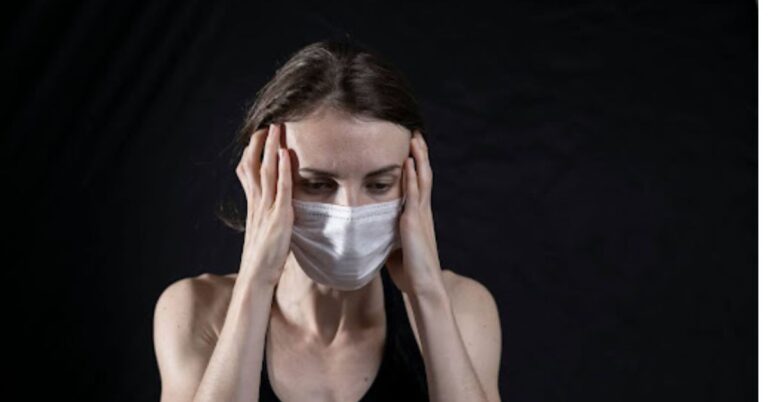Experiencing panic attacks while sleeping can be both confusing and terrifying. When it is linked to drug addiction, these panic attacks become even more distressing. Substance abuse has an impact on brain chemistry, enhancing levels of anxiety thereby making more episodes of nocturnal panic attacks.
A better understanding of signs of panic attacks while sleeping because of substance abuse or drug addiction can assist individuals in identifying, managing and seeking assistance for all unsettled episodes.
What are panic attacks?
Panic attacks are surprising episodes of extreme anxiety that happen at the time of sleep, which make an individual wake up abruptly. These panic attacks share the same symptoms as daytime panic attacks but happen without any kind of immediate trigger.
For those individuals who are suffering because of drug addiction, the risk of getting panic attacks becomes high because of the physiological and psychological effects of substance use. With time, repeated panic attacks can result in sleep disturbances, making addiction worse and deteriorating mental health.
Signs of a panic attack while sleeping
Identifying the signs of panic attacks can assist in differentiating them from nightmares or any kind of sleep disturbances. Here are some of the common signs:
- Suddenly awakening with fear: People experiencing panic attacks wake up with a feeling of extreme fear or a sense of looming doom, despite no external threat.
- Rapid heartbeat with palpitations: A pounding heartbeat or irregular heartbeat is one of the very important signs of panic attacks. Several individuals by mistake believe they are having a heart attack.
- Shortness of breath: Facing difficulty in breathing or a feeling of suffocation can follow panic attacks, contributing to amplifying distress and anxiety.
- Sweating and chills: Excessive sweating which is accompanied by chills or sweat is one of the physical responses to panic attacks.
- Trembling: Uncontrollable shaking can occur because of the fight and-flight response of the body.
- Feeling dizzy or lightheaded: Some people might feel dizzy or as if they might faint at the time of a panic attack.
- Nausea or feeling discomfort in the stomach: Panic attacks can cause stomach upset, abdominal discomfort or nausea because of panic attacks.
- Feeling of numbness: Several individuals report a feeling of tingling or numbness in their hands, face which can be very distressing sometimes.
Cause of panic attacks
Drug addiction causes disruption of brain functioning, which makes the nervous system highly vulnerable to panic attacks, mainly at the time of intoxication or withdrawal. Some of the common causes are:
- Withdrawal signs: When any individual gets addicted to drugs and tries reducing or quitting, withdrawal symptoms can trigger anxiety as well as panic attacks at the time of sleep.
- Use of stimulants: Drugs cause overstimulation of the nervous system enhancing the chance of panic attacks.
- Rebound effects of depressants: Some substances such as alcohol, opioids etc cause depression of the nervous system. When their effects wear off, the brain starts overcompensating, thereby leading to anxiety and panic attacks.
- Reactions like hallucinations: Some of the drugs cause changes in perception thereby causing long-term psychological effects, making users highly prone to panic attacks. These occur even when they are not under the influence.
- Sleep disturbances because of drug use: Several drugs interfere with the sleep cycles, leading to nightmares, restless sleep and enhanced vulnerability to panic attacks during nighttime.
- Any mental health issues: Several individuals with substance abuse also struggle because of anxiety disorders, depression or PTSD, enhancing the chance of panic attacks.
Prevention
While panic attacks can be distressing, some strategies can assist in decreasing the frequency as well as intensity.
- Look for professional assistance for addiction: Many recovery programs, detoxification, as well as counselling, can assist in addressing the main cause of substance-induced panic attacks.
- Slow detox and medical supervision: Quitting some drugs can worsen withdrawal symptoms which also include panic attacks. A detox program under medical supervision can assist in managing symptoms safely.
- Cognitive behavioural therapy: CBT is an efficient treatment for both panic attacks and addiction, assisting individuals to recognize and challenge negative patterns of thought.
- Practice methods of deep breathing: Controlled breathing exercises like the 4-7-8 method which is to inhale for 4 seconds, then hold on for 7 seconds and then exhale for 8 seconds, can assist in calming the nervous system.
- Advanced muscle relaxation: Tensing and relaxing various muscle groups before going to bed can help promote relaxation and decrease anxiety.
- Maintaining a healthy sleep routine: A constant sleep schedule, preventing screens before going to bed and forming a good nighttime routine can help in enhancing the quality of sleep.
- Limiting caffeine intake and alcohol intake: Avoiding consumption of stimulants such as caffeine and alcohol before bedtime is good as they can cause disruption of sleep and enhance anxiety.
Conclusion
It is frightening to experience panic attacks while asleep, but a good understanding of the signs of panic attacks while sleeping can help individuals take control of their mental health. Looking for professional assistance, adopting good lifestyle habits and addressing the main cause of addiction can decrease the frequency and intensity of those episodes.

